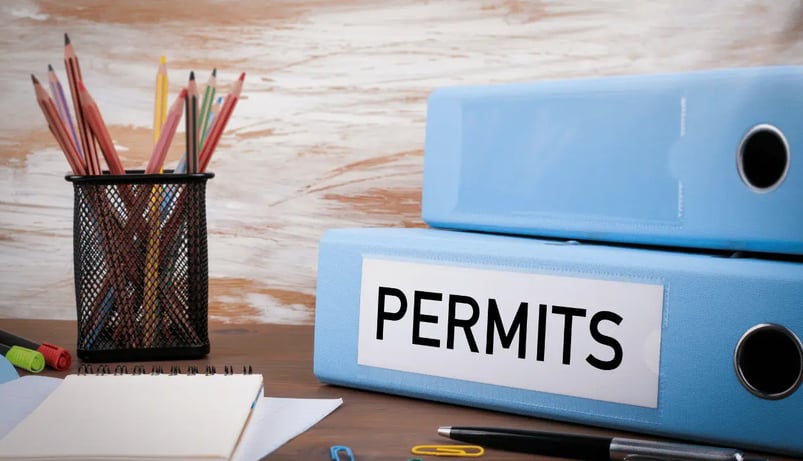Essential Steps to Register Your Startup in India
STARTUPS
9/16/20245 min read


A Complete Guide to Registering a Startup in India
Starting a business in India is an exciting venture, but carefully going through the legal steps is important. The startup ecosystem in India is booming, registering your startup is important to comply with regulations, get government policies, and attract investors By registering officially you are not complying with legal requirements only you prepare your business for long-term success.
Many entrepreneurs find themselves overwhelmed by the registration process, but don’t worry—after breaking it down step by step you’ll realize it’s not as scary as it sounds, let’s get into it!
Step 1: Decide on a Business Structure
The first decision you need to make is choosing the right business model. This decision affects everything from day-to-day operations to taxes and how much risk you have to rely on yourself. There are five common choices:
Sole Proprietorship: Ideal for freelancers or low-risk small businesses. You are in full control, but you will also be in full control of the cost. If you’re testing your business ideas, this simple setup could be perfect.
Partnership: It’s great to cooperate with one or more partners, where everyone shares responsibilities and benefits. However, make sure there is a clear association to avoid misunderstandings.
Limited Liability Partnership (LLP): If you want the flexibility of a partnership but with minimal personal liability, this program offers the best of both worlds. It’s a popular choice for small-to-medium startups.
Private Limited Company: It is a destination for startups willing to grow and invest. This allows you to issue dividends, attract investors, and assign less liability to shareholders.
One-Person Company (OPC): If you are a solopreneur but want the benefits of a company structure, OPC is a great option. You have limited liability with the company regime of complying with all the laws.
Before you make this decision, take time to analyze your career goals and future plans. Proper planning can save you a headache down the road!
Step 2: Choose a Unique Business Name
Your business name is often the first impression people make of your company, so it’s important to give it importance. You want a name that is not unique but also reflects your brand vision. It’s like choosing a name for your baby—except in this case, your “baby” works!
If you have considered some proposals, submit them through the Corporate Affairs (MCA) portal to ensure they have not already been accepted. Keep in mind that names that are too similar to existing government agencies or businesses are a no-go. It’s smart to check social media handles and domain name availability to ensure your name is consistent across platforms.
Step 3: Obtain a Digital Signature Certificate (DSC)
In today’s digital world, a digital signature certificate (DSC) is a must for submitting documents online. The DSC is used to sign documents and verify secure identity—think of it as a digital passport.
To get your DSC, you will need to approach an authorized certification authority such as TCS or eMudhra. You’ll send proof of your ID and address (such as an Aadhaar card or passport), and in a few days, you’ll have your digital identity card ready to use.
Step 4: Apply for a Director Identification Number (DIN)
If you want to be a director in your company (or anyone else), it is mandatory to have a Director Identification Number (DIN). A DIN is a unique identification number that tracks drivers and ensures transparency.
You can easily apply for DIN through the MCA portal by filling out the DIR-3 form. You will need proof of identity and address and a passport-sized photo. Once approved, you’re ready to take control of your company as an official!
Step 5: Register with the Ministry of Corporate Affairs (MCA)
Now, it’s time to make things official. Registering your startup with the MCA gives your business legal status and opens up various benefits like government programs and tax advantages.
You will need to submit documents such as a Memorandum of Understanding (MoA) and Articles of Association (AoA), as well as directors’ ID proofs and company address to the MCA portal using a simplified form called SPICe+ to facilitate the process. Keep in mind that minor mistakes or missing documents can delay your registration, so double-check everything before you hit submit.
Step 6: Obtain Necessary Licenses and Permits
Depending on the nature of your startup, you may need various licenses and permits to operate legally. For example, if your business sells goods, you will need to register for GST. If you are opening a cafe or restaurant, you need to get an FSSAI license. Different jobs have different requirements so do your research or consult an expert.
Missing this step could result in bankruptcy or worse, closure of your business. Therefore, it is important to have the right permissions from the beginning.
Step 7: Open a Business Bank Account
Now that your business is officially registered, it’s time to open a business bank account. Having a dedicated account for your startup separates your personal and business finances, making it easier to track expenses and keep track of taxes. In addition, it adds another level of professionalism when dealing with clients and partners.
When choosing a bank, look for a bank that offers services tailored to startups, such as low fees or financing options. You will need documents like a company certificate, PAN card, and identity proofs to open an account.
Conclusion
Signing up for a startup in India may seem like a daunting process, but if you break it down, it’s manageable. By following these steps, you will not only be compliant but you will set your business up for success. And remember, any successful business starts with a solid foundation—so take the time to perfect this process.
Starting a business is an exciting journey full of opportunities. With proper planning and the right legal framework, you can create something truly unique.
Good luck on your career journey!














Address
Bhilai Ofice :- Hall No. 02, 2nd floor, Chauhan state, GE Road Supela, Bhilai, CG 490023
Pune Office:- 2nd Floor, Jera Junction. Above Latur Urban Cooperative Bank, Lullanagar Kondhawa, Kondhwa Rd, Lulla nagar, Pune, Maharashtra 411040
Contacts
+91 8269269265
info@arthiq.co.in
admin@arthiq.co.in
Subscribe to our newsletter
Quick Links
Our Partners & Associates














© 2024 ARTHiQ.co.in. All Rights Reserved
